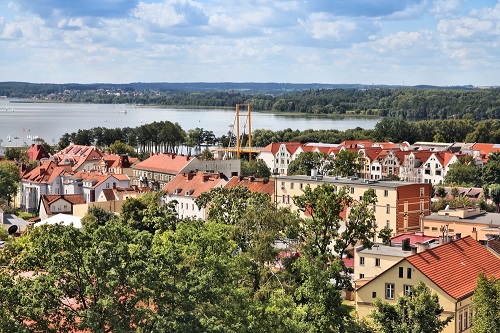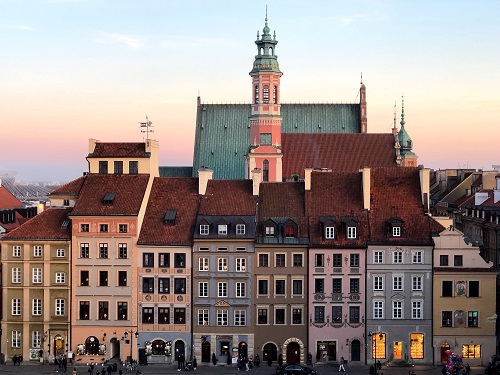Poland has a national healthcare system, which everyone living and working in the country is obliged to pay into, and which is free at point of access. Retired expats can pay into the scheme voluntarily.Although the Polish government is presently engaged in a scheme to improve facilities and access to healthcare, the national service remains underfunded in comparison to those in most of the rest of Europe, and hospitals are often understaffed.
In rural areas, in particular, you may have to travel long distances to your primary practitioner and your hospital/clinic appointments. As a result, despite the continuing reforms, outcomes for certain long-term and critical conditions in Poland lag behind those in the UK and USA.
Many Poles opt to take out private health insurance in addition to using the state scheme. If you are living with a chronic illness or condition, it can be hard to find adequate private health insurance, and premiums can be high. However, for those who can afford to, taking out private health insurance is recommended if you are resident in Poland, due to the current short-comings in the public health system.
Rates of chronic illness in Poland
In 2019, the average life expectancy in Poland was 78.8 years, placing the country just behind the USA in national league tables. The leading causes of death are cardiovascular disease (including strokes) and cancer, particularly lung, colorectal and breast cancers. While smoking is slowly declining in the country, around a quarter of the adults there are smokers, and heavy alcohol consumption also remains a significant problem.
In addition, less than 60% of the population took part in regular physical activity in 2018, and obesity levels are rising. As a result, muscular-skeletal problems, such as neck and back pain and trouble with knees and hips, are common, and many Poles over 65 face some level of disability. Rates of hypertension, diabetes and asthma are also increasing. All of these have led to an increased burden on the public healthcare system, and waiting times are often long both for hospital procedures and for long-term care.
As a result, mortality rates in Poland are high in comparison to in other EU countries. However, Poland has a higher than average survival rate for patients in need of acute care, in particular those with cardiovascular conditions. Outcomes for cancer patients, on the other hand, lag behind those in other EU countries. The government has set in place a programme promoting prevention, early diagnosis and lifestyle change, alongside improvements in medical care, and progress is carefully monitored.

Similar campaigns are underway to promote healthy eating, increased exercise and reduced alcohol consumption. In line with other EU countries, smoking is banned in public buildings and spaces, on public transport, in workplaces and in sports arenas, although bars, clubs and restaurants are still allowed separate, well-ventilated smoking rooms.
Private healthcare for chronic illness
There are many private hospitals and clinics in Poland, mainly in the cities. They have more staff, and, as a result, you can expect high standards of care and provision in them. Cardiology is a particular area of strength, along with infertility treatment.
If you have muscular-skeletal problems, high-quality knee- and hip-replacements cost up to 60% less than they do in the UK or US. You will also find state-of-the-art clinics in most cities for spinal issues and rheumatology. A number of clinics offer innovative stem cell treatments for some cancers, as well as surgery using nano-knives, and again these are of an international standard.
Poland has a strict regulatory system for all healthcare providers, whether part of the national health scheme or private institutions, and private hospitals are subject to regular inspections to ensure proper medical standards are met. As a result, it is easier to find a reputable and reliable clinic or specialist and to avoid fraudulent or misleading claims and treatments.
Living with a disability in Poland
Poland ratified the United Nations Convention of the Rights of People with Disabilities in 2012, and since then has taken significant steps in improving accessibility. By law, building works, both for new builds and renovations, must be accessible to people with disabilities, as must public spaces.
Significant progress has been made in making public transport fully accessible, with ramps, aids for people with sight loss, and easy access to platforms and bus stops. In Warsaw, all trains and stations are accessible for wheelchair users, and the bus network is being upgraded to match this. Access to public buildings, museums and attractions has been improved, and the city is working on an accessible website. An app for users with disabilities is also under development. People with disabilities have been involved in all stages of this. In December 2019, the city received the 2020 Access City Award.
Krakow has been taking steps to improve access, and all tram and bus routes now have at least one accessible service. Many shops, attractions and buildings display a ‘Krakow without Barriers’ plaque and are fully accessible. Other cities are also taking major steps in this area. In 2018, the country introduced an Accessibility Plus campaign, which aims to improve access on all levels across the country by 2025.

Further information
Below are some useful sources of additional information:
Warsaw City Transport
This website provides information on public transport in the capital, with reference to accessibility.
Accessible Poland Tours
This website specialises in organising tours for travellers with disabilities and mobility problems.
Nie Pelno Sprawni
This website is in the Polish language only. It provides up-to-date information on the current situation for people with disabilities in Poland.
Accessibility Plus
A document with information about Accessibility Plus.
Polish Federation of Supported Employment
This website provides information for people with disabilities working in Poland.
European Social Network
This website provides information on services for people living with disabilities in Poland.

